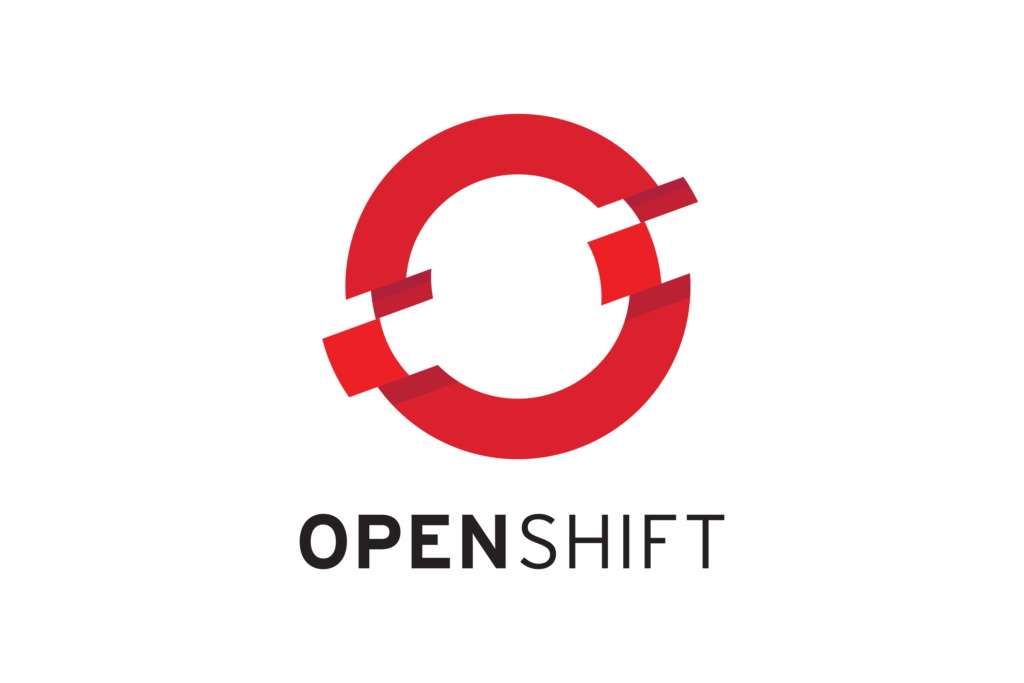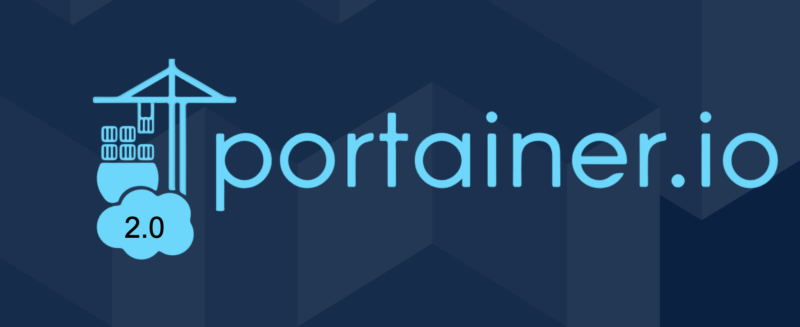In the ever-evolving landscape of container management, Portainer has long been a go-to choice for Docker and Kubernetes enthusiasts. However, as technology advances and user needs diversify, it’s essential to explore Portainer alternative solutions that can cater to specific requirements and offer unique features. In this comprehensive guide, we’ll delve into Portainer, its features, limitations, and what sets it apart. We’ll also discuss the reasons why you might seek a Portainer alternative and provide an in-depth analysis of ten compelling options. Finally, we’ll explore the critical factors to consider when choosing the perfect Portainer alternative.
Understanding Portainer

Features of Portainer
Portainer is renowned for its user-friendly interface and robust feature set. It allows users to:
- Intuitive Dashboard: Portainer provides a clean and intuitive dashboard that simplifies container orchestration and management, making it accessible even for beginners.
- Multi-Platform Support: It supports both Docker and Kubernetes, offering flexibility to users with diverse containerization needs.
- Container Lifecycle Management: Portainer allows users to create, deploy, and manage containers effortlessly, streamlining the container lifecycle.
- Role-Based Access Control: With RBAC, Portainer ensures secure access control, allowing administrators to assign specific permissions to users and teams.
- Resource Monitoring: Users can monitor container resource usage in real-time, aiding in performance optimization.
Limitations of Portainer
While Portainer excels in many aspects, it does have limitations, including:
- Limited Scalability: Portainer may struggle to manage large-scale container deployments efficiently.
- Advanced Kubernetes Features: It lacks some advanced Kubernetes features, making it less suitable for complex use cases.
- Enterprise-Grade Security: Portainer may not meet the stringent security requirements of some enterprise environments.
- Support Dependency: Users may rely on community support, as official support is available through Portainer’s paid version.
What Sets Portainer Apart?
What makes Portainer stand out in the crowded container management landscape is its user-friendly interface and ease of use. It caters to both beginners and experienced users, providing a smooth learning curve. However, there are scenarios where you might consider seeking a Portainer alternative.
The Need for Portainer Alternatives

There are several reasons why you might need to explore Portainer alternatives:
1. Scalability
As your containerized applications grow, you may require a solution that can seamlessly scale with your needs. A limitation of Portainer is its potential struggle with managing large-scale deployments efficiently. In such cases, you need a more robust Portainer alternative that can handle the increased workload without compromising performance.
2. Advanced Kubernetes Features
If you’re working extensively with Kubernetes and need advanced features, a more specialized tool might be preferable. While Portainer offers Kubernetes support, it may lack some of the advanced capabilities required for complex use cases. Specialized Portainer alternatives can provide a richer set of features tailored to Kubernetes enthusiasts.
3. Enterprise-Grade Security
For businesses with stringent security requirements, an enterprise-focused container management solution may be necessary. Portainer, while suitable for many use cases, may not meet the stringent security demands of certain industries. In such scenarios, exploring Portainer alternatives with enhanced security features becomes crucial.
4. Diverse Ecosystem
Depending on your specific use case, you may require integration with other tools and services that Portainer doesn’t offer out of the box. In a rapidly evolving tech landscape, adaptability and ecosystem compatibility are paramount. Your chosen Portainer alternative should seamlessly integrate with your existing toolset to streamline your workflow.
Commonly Used Portainer Alternatives For Container Management

Now, let’s dive into some of the commonly used Portainer alternatives, each catering to unique container management needs.
1. Rancher
Rancher is a robust container management platform that shines in Kubernetes management. Key features include:
- Kubernetes Excellence: Rancher provides advanced Kubernetes management capabilities, making it a favorite among Kubernetes enthusiasts. It simplifies the management of Kubernetes clusters, offering features such as multi-cluster management and a rich application catalog.
- Multi-Cluster Management: Easily manage multiple Kubernetes clusters from a centralized dashboard. Rancher’s multi-cluster management capabilities make it an excellent choice for organizations with diverse Kubernetes deployments.
- Application Catalog: Streamline application deployment with a vast catalog of pre-configured templates. Rancher’s application catalog empowers users to deploy applications quickly and efficiently.
2. Kubernetes Dashboard
If you’re deeply entrenched in the Kubernetes ecosystem, the Kubernetes Dashboard offers:
- Native Kubernetes Integration: It seamlessly integrates with Kubernetes clusters, providing a familiar interface. Kubernetes Dashboard is a web-based UI that offers real-time insights into your cluster.
- Resource Monitoring: Keep an eye on resource utilization and cluster health. The dashboard provides essential metrics and resource monitoring capabilities to help you ensure optimal cluster performance.
- User-Friendly Interface: Suitable for both novice and expert Kubernetes users. Kubernetes Dashboard’s user-friendly design ensures that users of all levels can interact with Kubernetes resources effectively.
3. Docker Swarm
For those who prefer Docker’s native orchestration, Docker Swarm offers:
- Simplicity: Docker Swarm is known for its ease of use, making it an excellent choice for small to medium-sized container deployments. It simplifies container orchestration, making it accessible to teams with varying levels of expertise.
- Built-in Load Balancing: Easily distribute traffic across container instances without third-party tools. Docker Swarm’s built-in load balancing capabilities enhance the availability and reliability of your applications.
- Horizontal Scaling: Scale your containers effortlessly as your needs grow. Docker Swarm’s horizontal scaling features ensure that your applications can handle increased traffic and workloads.
4. KubeSphere
KubeSphere combines the power of Kubernetes with a user-friendly interface, offering:
- Multi-Tenancy Support: Ideal for organizations with multiple teams or projects. KubeSphere provides robust multi-tenancy support, allowing different teams to work on shared Kubernetes clusters securely.
- DevOps Integration: Facilitate the DevOps pipeline with built-in CI/CD tools. KubeSphere streamlines the software development lifecycle by offering a suite of DevOps tools and capabilities.
- Application Marketplace: A wide array of pre-packaged applications for quick deployment. KubeSphere’s application marketplace accelerates application delivery by offering a curated selection of ready-to-deploy applications.
5. Shipyard
Shipyard, though simple, has its own merits, such as:
- Lightweight: Minimal resource consumption, suitable for resource-constrained environments. Shipyard’s lightweight nature ensures that it can run efficiently on systems with limited resources.
- Web-Based Interface: Manage containers through a web browser from anywhere. Shipyard’s web-based interface enables remote container management, allowing you to control your containers conveniently.
- Docker Compatibility: Seamlessly integrates with Docker, providing a familiar environment. Shipyard is designed to work seamlessly with Docker, making it an excellent choice for users already familiar with Docker’s ecosystem.
6. Kontena Pharos
Kontena Pharos offers a Kubernetes distribution with:
- Batteries Included: It comes with essential Kubernetes components pre-configured. Kontena Pharos simplifies Kubernetes deployment by including all the necessary components out of the box.
- Easy Installation: Hassle-free Kubernetes cluster setup. Kontena Pharos streamlines the installation process, reducing the complexity of deploying Kubernetes clusters.
- Scalability: Designed to scale with your containerized applications. Kontena Pharos ensures that your Kubernetes clusters can grow alongside your application needs.
7. D2iQ Konvoy
D2iQ Konvoy is another Kubernetes distribution that provides:
- Enterprise-Grade Features: Suitable for businesses with high availability and security requirements. D2iQ Konvoy offers enterprise-grade features and support, making it an ideal choice for organizations with stringent demands.
- Automated Operations: Simplifies the management of complex Kubernetes clusters. Konvoy’s automated operations reduce the burden on administrators, ensuring smooth cluster operations.
- Integrated Monitoring: Monitor cluster health and performance seamlessly. Konvoy offers integrated monitoring capabilities to help you proactively manage your Kubernetes clusters.
8. Octant
Octant is an extensible Kubernetes dashboard that provides:
- Real-Time Insights: Gain valuable insights into your Kubernetes clusters. Octant’s real-time insights and visualizations make it easy to monitor and troubleshoot your Kubernetes resources.
- Customization: Tailor the dashboard to your specific needs with plugins. Octant’s extensibility allows you to customize the dashboard to match your workflow and requirements.
- User-Friendly: Designed to be user-friendly for Kubernetes novices. Octant’s user-friendly interface ensures that even users new to Kubernetes can navigate and manage their clusters effectively.
9. OpenShift
OpenShift, developed by Red Hat, is a robust container management platform that offers:
- Enterprise-Grade Kubernetes: OpenShift provides enterprise-grade Kubernetes support, making it a strong choice for businesses with stringent security and compliance requirements.
- Developer-Friendly: It offers tools and features designed to facilitate collaboration between development and operations teams, streamlining the DevOps pipeline.
- Integrated CI/CD: OpenShift includes built-in CI/CD pipelines, simplifying the process of building, testing, and deploying applications.
10. Nomad
Nomad, developed by HashiCorp, is a lightweight yet powerful container orchestration and scheduling tool known for:
- Simplicity: Nomad is designed to be easy to set up and use, making it suitable for small to medium-sized container deployments.
- Multi-Cloud Support: It supports multi-cloud and hybrid cloud environments, allowing you to deploy and manage containers across different cloud providers.
- Task Scheduling: Nomad excels at task scheduling and can be used for both long-running services and batch-processing workloads.
These ten Portainer alternatives offer various features and capabilities to cater to different container management requirements. When selecting the ideal Portainer alternative for your needs, several crucial factors should guide your decision.
Factors To Consider While Choosing The Perfect Portainer Alternative

1. Scalability
Consider the scalability of the Portainer alternative, especially if you anticipate significant growth in your containerized applications. Ensure it can handle your projected workload without performance bottlenecks. Scalability is a critical factor, as a lack of it can lead to performance issues and hinder your ability to expand your containerized applications seamlessly.
2. Kubernetes Support
If Kubernetes is central to your container strategy, prioritize alternatives that excel in Kubernetes management and offer advanced features for orchestration. Kubernetes support extends beyond basic compatibility; it encompasses features that enhance your Kubernetes experience, such as multi-cluster management and streamlined application deployment.
3. Security
Evaluate the security features and compliance capabilities of the Portainer alternative, especially if you operate in a regulated industry or require enterprise-grade security. Security is a paramount concern, particularly for businesses handling sensitive data or operating in highly regulated environments. Your chosen alternative should offer robust security features and support compliance requirements.
4. Integration
Consider how well the alternative integrates with your existing toolset, as seamless integration can enhance your container management workflow. Integration is key to achieving a streamlined and efficient container management process. An alternative that integrates effortlessly with your existing tools and services can save time and reduce complexity.
5. Community Support
Examine the availability of community support and resources, as a vibrant community, can be invaluable when troubleshooting issues or seeking guidance. Community support plays a vital role in your ability to resolve issues, access knowledge, and collaborate with fellow users. A thriving community can provide valuable insights and solutions to challenges you may encounter.
Conclusion
In the dynamic world of container management, finding the perfect Portainer alternative is essential to meet your specific needs. Whether you prioritize scalability, advanced Kubernetes features, or enterprise-grade security, there’s a solution tailored to your requirements. By considering the factors mentioned in this guide, you can make an informed decision and ensure seamless container management for your applications.









